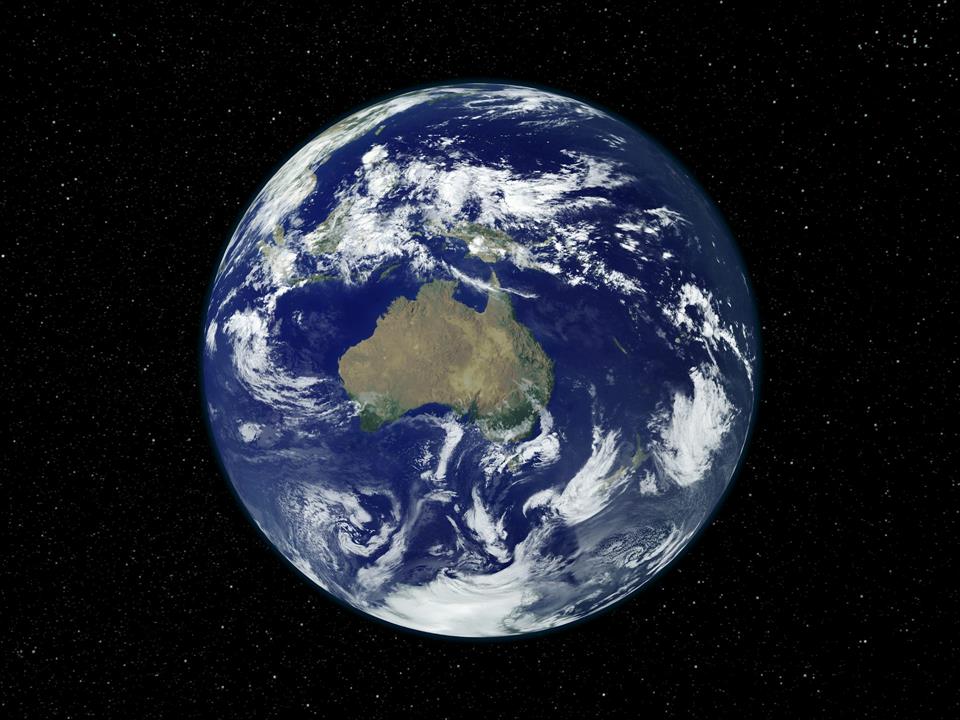Australians Want To Spend More On Space But We Don't Really Know Where We're Going
The answer is they're conscious of space being important, but know little about what we are doing, or where we are going.
Two years on from the first-ever survey on Australian opinions about space, this week we released a new report on the subject.
Both show we have a long way to go when it comes to informing the Australian public about space as something that's relevant to their everyday lives.
Australians don't know what we're doing in the space sectorAt the International Astronautical Conference , excitement about space is very much on show. Rockets, satellites and spacesuits dot the exhibition hall. But our research shows the average Australian isn't fully aware of what the country is doing in the sector.
We surveyed 1,500 Australians in July of this year and weighted that sample to be nationally representative.
The responses show Australians are ready to care about space, three times as likely to want to spend more on it than less, and more than half of Australians see the commercial space sector as important for the economy. Nonetheless, awareness still remains low.
Compared to 2023, general interest and knowledge about space have increased a little, and Australians are supportive of space in general. But less than a quarter of Australians have a clear sense of Australia's future direction around space.
This was despite Australians appreciating the importance of space, with only 19% saying that space has little impact on their lives.
How does space contribute to our lives?Space technologies are integral to everyday life. Thanks to data and communications services from satellites, you can use a navigation app to find the nearest coffee shop and then pay for that coffee with your phone.
Satellites contribute to weather forecasts and help monitor disasters such as floods and bushfires. From agriculture to defence, many industries rely on space tech.
However, few Australians associate everyday transactions, such as navigation or banking, with space. When we asked respondents to rate how much their life would be disrupted if we suddenly lost space capability for a day, they estimated there would be some disruption, but few thought it would be major or severe.
Commercial space is important for our economyCommercial space is at the forefront of the conference this week. The Australian government recently announced a series of measures to boost Australia's cooperation with Europe and the United States, which would in turn grow Australia's space industry.
The public seems to support such measures. A majority (53%) see the commercial space sector as important for the economy while only 11% do not.
Leading opportunities include jobs (57%), access to sovereign space capability (42%) and the nation being more competitive as a destination for investment and high-skilled labour (42%).
Sovereign space capability is a nation's independent ability to access, control and use space-based technology without relying on foreign entities.
Australians want to see their government working together with their partners, but they also expect Australia to pull its own weight and contribute to building its own space capabilities. Almost half of Australians (48%) think that Australia can“achieve its sovereign goals in space”, while only 16% disagree and roughly a third (35%) are neutral.
However, the public feels these efforts shouldn't come at a cost to the environment. Two-thirds of Australians (67%) think it's important for Australia to invest in sustainable space practices which ensure that the environments of Earth and space are protected.
Where exactly are we going?Much of the expert conversation around Australian space activities at this week's conference is about where the country should go next, what its priorities should be in space, and the importance of growing the sector.
However, the results of our survey suggest that bringing the average Australian along might be more difficult than all that excitement suggests.
Relatively few Australians have a sense of the country's trajectory in space. Australians also tend to not know the breadth of space's impact on their lives. They're aware that“space” means“satellites and rockets”. But they're less aware of how space influences banking, farming and transport.
All this means that while there is a great deal of momentum, how Australia talks about the space sector must change.
That space is“exciting” is not enough. There must be real links made between this vital sector and the everyday lives of Australians. Bringing everyone along for the journey, in a way that means something to each individual, will enable Australia to travel to the stars.

Legal Disclaimer:
MENAFN provides the
information “as is” without warranty of any kind. We do not accept
any responsibility or liability for the accuracy, content, images,
videos, licenses, completeness, legality, or reliability of the information
contained in this article. If you have any complaints or copyright
issues related to this article, kindly contact the provider above.
Most popular stories
Market Research

- Seoul Exchange, One Of Only Two Licensed Platforms For Unlisted Securities, Will Exclusively Use Story To Settle Tokenized Rwas
- Phase 6 Reaches 50% Mark As Mutuum Finance (MUTM) Approaches Next Price Step
- 0G Labs Launches Aristotle Mainnet With Largest Day-One Ecosystem For Decentralized AI
- Solotto Launches As Solana's First-Ever Community-Powered On-Chain Lottery
- Kintsu Launches Shype On Hyperliquid
- Blockchainfx Raises $7.24M In Presale As First Multi-Asset Super App Connecting Crypto, Stocks, And Forex Goes Live In Beta





















Comments
No comment